#language learning tip
Explore tagged Tumblr posts
Text
weird language study tip; look up qna questions and answer them in your target language. extra points for pretending to be a youtuber.
#langblr#language learning#studyblr#language stuff#foreign languages#languages#studying#language learning tip#langblr study tip#langblr tip#language hack
55 notes
·
View notes
Text
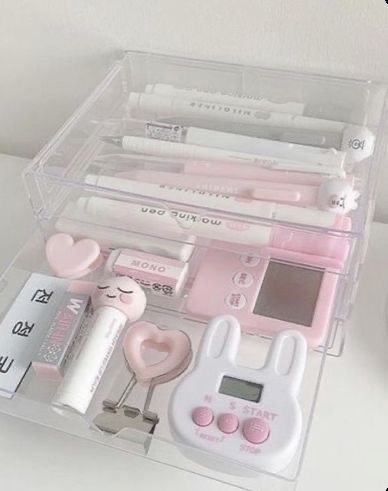
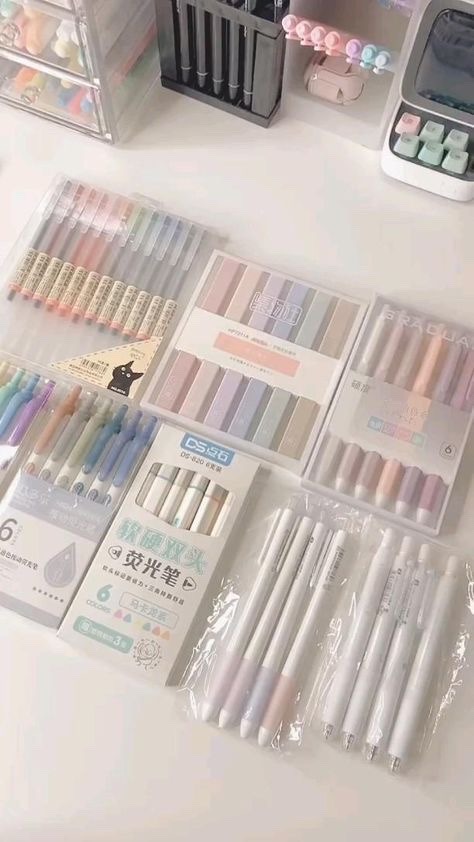

Current Japanese Study Routine + Resources 🎀
As you all may know, I am currently self studying Japanese and Spanish, though I am putting Spanish on the back burner for now so I can focus more on Japanese as that is where my passion lies at the moment. Lucky for me, there is a Japanese language and culture club on my university campus that I am (hopefully) going to join next week or the week after, given how busy my schedule ends up being. I thought I’d make a little post about my current routine that I use to study and what resources I am currently using and am planning on purchasing to use in order to build my proficiency in this beautiful language!
Current Resources 🩷
Apps - I am currently playing around with several apps to see which ones work for me, so here is all the apps I currently have downloaded to my iPad/phone
Duolingo - this has been a go to for all language I’ve ever tried to learn, it’s useful for me as a basic introduction to vocabulary, sentence structure, some grammar, and I just like how it involves typing, speaking, listening, and reading.
Drops - this one is just a fun little 5 minutes gamified way to learn vocabulary for me, it’s definitely a go to on my lazier language learning days
Bunpo - I like this for learning the kana but I didn’t realize it costs money to use fully so I am debating purchasing a subscription to the paid version
Write Japanese - this one I’m using to learn the correct stroke order for the kana and I like it for the most part
Renshuu - I just signed in to use this one last night and it looks interesting. I’ve seen it recommended by several blogs and even when google searching language learning and watching YouTube videos so I’m excited to try it out!
NHK for School - I saw someone recommend this on their blog and I remember using the website version in the past so I know this will be helpful when it comes to reading
Jisho - this is a dictionary app that I’ve seen recommended on so many platforms and I’m always open to a good dictionary!
Japanese - this one was recommended on a blog post and it allows you to add vocabulary and interesting phrases so I thought it’d be useful once I start on learning sentence structure and grammar
Italki - this one is the one I’m most excited to use. It connects you to people who speak and teach your target language for a set timed lesson, and it does cost money but you pay by lesson, not on a subscription basis. So if you do one lesson the first week and then another lesson in three weeks or something, you only pay for those two lessons. I’m really looking forward to trying this one out in the future once I get more comfortable with speaking.
Anki - a flash card app I am using to currently learn hiragana and will soon use for katakana and eventually kanji and phrases. I was gonna use Quizlet but I ended up liking this one better for my current needs.
LingoDeer, Memrise, Babbel, HiNative, HelloTalk, Hey Japan, Busuu, Kanji, Kana, Sensei - apps that I have and have not tried yet. I really like the ones I’ve already tried so I’m not sure if I’m going to use these ones soon but if I get bored of current apps than I at least have alternatives to turn to to continue learning
Textbooks/Workbooks/Materials - I currently own two workbooks but will include the resource I am planning on buying, as well as any stationery material I am also using!
Japanese for Busy People I - This was the workbook we had for the Japanese class I took at my university while in high school. My dad ended up buying it for me if I promised not to take Japanese classes once I went to college. (My parents don’t believe it is useful to know and they are helping pay for my education so I didn’t have a choice.) I haven’t started reusing it yet but once I am comfortable with the kana then I will resume using it.
Let’s Learn Katakana - this is a katakana writing book my older brother bought for me (he is supportive of everything I have an interest in even if he doesn’t understand it himself) and it is really useful for learning and practicing writing katakana. However I am still focusing on relearning hiragana so I will return to this workbook after I solidify my hiragana knowledge.
Genki I and Genki II textbook/workbook + answer key bundle - I am planning to buy this off of Amazon as I have heard from most people who are learning Japanese on their own that this set is really useful for self studying so of course I am going to invest in it once I get paid next week.
I am also looking for a hiragana, katakana, and kanji writing workbook to practice those skills.
Free Online Resources -
YouTube!
Anime!
Music
Manga
Anything free I can find online when google searching resources
Stationary Supplies -
Kokuyo Campus Smart Ring Binder in pink
Tombow Fudenosuke Brush Pens in black
Index cards
Pilot g-2 fashion pens
Zebra mild liner highlighter/markers
Papermate Mechanical Pencils
Mini notebook to carry around for vocabulary
My iPad + Apple Pencil + Goodnotes 5
My Chromebook
A lot of resources but I am trying to stick with this for the long term. A few years ago, I self studied Japanese everyday for about 2 years and gained a good understanding but fell off from studying Japanese when I went to university.
My Current Study Routine* 🎀
*when I have more than 30 minutes to study, if I only have 30 minutes or less I just mess around on my language apps
I currently do not use any workbooks or textbooks as I am trying to re familiarize myself with the language. Here’s my current study routine!
Practice Anki flashcards 3 times or until I get 85-90% correct
Practice hiragana writing in Write Japanese app (~10min)
Duolingo lessons for 10 minutes
1 Japanese language Drops lesson
Use Renshuu until I get bored (~10-15min)
Watch an episode of anime as a reward (Japanese audio with English subtitles)
I will switch this up to a more structured way of studying once I start using my textbooks and workbooks, but for now this relaxed style of learning is working for me time wise and attention wise (ADHD brain right here).
I also listen to Japanese music throughout the day and try to recall hiragana characters correctly in my head when I have the time. I also sneak in some practice when at work on my apps and whatnot. I mentioned in my last daily check in some of my favorite Japanese artists, and I also love Japanese versions of K-pop songs too! I’m currently watching Bungou Stray Dogs on crunchyroll right now, and I’m open to any recommendations for what to watch next!
If anyone has any language learning tips or resources they’d want to share, feel free to comment! It would be greatly appreciated!
Til next time my lovelies 🩷🤍
#pink pilates girl#pink pilates princess#self care#self development#self love#wonyoungism#health & fitness#mental health#it girl#physical health#japanese language learning tips#language learning tip#language resources#language learning tips#language learning#langblr#studyspo#college studyblr#vanilla girl#green juice girl#coquettecore#college study tips#coquette girl#study tips#studyblr#studyinspo#foreign languages#language tips#pink academia#pink blog
210 notes
·
View notes
Text
youtube
Oh look, a method that works for Dangme. I can use the Bible audio.
0 notes
Text
Found a new language practice app!
Polygloss has you describe an image in your target language so another player can guess it. It encourages creative answers. The game works for people of all levels — you can describe simple pictures or try your hand at wordplay.

It has plenty of options and will let you add any language you’d like — tho it’ll probably be more difficult to find people to play with.
#language learning tips#Quinn posts#language resources#Japanese resources#Spanish resources#language#langblr#language learning#100#500#1k
1K notes
·
View notes
Text
The known-ish words of intermediate Chinese, or: What does it mean to know a word?
We all have this intuition, especially in languages like Chinese, that there are words we 'kind of know'. These are the known-ish words. In the case of Chinese, most people would recognise at least three axes:
1) Do I know the meaning? 2) Do I know the pronunciation? 3) Do I know how to handwrite it?
You might answer yes to some, but no to others. Voila! You know the word - ish.
And then you can also add the dimension of passive and active knowledge:
1) Do I recognise this word passively? 2) Can I use this word actively?
Great. Even more ways of kind of but not really knowing a word. But that's far from all. There's also the different domains of listening and reading, writing and speaking.
So passively, that looks like:
1) Do I know the meaning when listening? 2) Do I know the meaning when reading? 3) Do I know the pronunciation when reading?
Once we add in the active dimension, it all starts to get a bit more complicated. This is far from an exhaustive list, but consider the follows ways you could define 'knowing' a word:
1) I can read the word out loud (but I don't know what it means, and I can't use it in a sentence) 2) I know what the word means, and I can use it in a sentence (but I can't handwrite it) 3) I can use the word in a spoken sentence (but I don't know how to type it, or which character it uses) 4) I can recognise the word when reading (but don't know how to read it out loud, and can only guess at the meaning) 5) I can use the word in a written sentence (but not a spoken sentence) 6) I can type the word and recognise the word (but I don't know how to handwrite it) 7) …
Okay. What else?
Chinese is a compounding language.
Have you ever had the experience that you can't recognise a character individually, but as soon as you see it in a familiar compound, you know what it means? So:
1) I can recognise the word individually 2) I can recognise the word as part of a compound 3) I can recognise the word as part of an unfamiliar compound
Chinese is also a language with a long and storied tradition of writing in Classical Chinese as a literary language and a lingua franca across the whole of East Asia - even two hundred years ago, people were writing in Literary Chinese. 'Mandarin' as a concept did not exist.
So often the meanings of familiar characters can be quite different in formal language or chengyu in the modern language, which uses more classical / literary structures and grammar.
Take, for example, the character 次. The first layer of meaning in modern Chinese - the most foundational layer - is its meaning as time, like 'I have been to Ghana two times'.
But its second layer of meaning is secondary, or next best, or just next. For example:
1) 次货 - substandard goods 2) 次子 - second son 3) 次年 - next year
And so on. Many common words have this kind of polysemy.
So we can add another dimension:
1) I recognise this word's common meanings 2) I can use this word's common meanings 3) I recognise this word's less common meanings 4) I can use this word's less common meanings
Add in the reading and listening dimensions, and things get even messier. I am familiar enough with this basic secondary meaning of 次 to fairly quickly be able to understand that it means 'next' or 'second' rather than 'time' if I see it in a written unfamiliar compound or chengyu. But I am most definitely not quick enough to do that every single time whilst listening to the news, for example!
And what about pronunciation? Once you know a fair amount of Chinese characters, you can often guess the pronunciation of new or unfamiliar characters. How?
Because of phonetic components.
For example:
请
清
情
Notice how these all have the same component on the right? This tells us that these characters belong to the largest group of Chinese characters, phonetic-semantic characters. That is - some part of the character gives a clue to the meaning, and some part gives a clue to the pronunciation. In this case, we know they are all pronounced some variety of qing.
But it isn't always that easy. Some phonetic components tell you the tone and pronunciation - some tell you the pronunciation, but not the tone (like qing above). Some phonetic components, to go even further, are only really decipherable if you have a particular interest in phonology or historical linguistics, or learn the patterns. Consider:
脸 - lian3 (face)
险 - xian3 (dangerous)
验 - yan4 (test)
剑 - jian4 (sword)
签 - qian1 (to sign)
捡 - jian3 (to pick up)
There are far more. If you look down the whole list on Pleco, they all show a similar pattern of variation. You can see some patterns, but also numerous exceptions - most end in the -ian final, except for those that are yan of various tones. All begin with l, x, y, j, q. Most are pronounced jian3, but that is far from a rule.
All this to say - you can see a character, and know vaguely how it is pronounced. If I know that a character is pronounced qing definitely, 100%, but don't know the tone - does that mean I know the pronunciation? Or would you only say that knowing it 100% means knowing it? And in that case - how can you account for the fact that learning a character when you already know 90% of the pronunciation is significantly easier than not knowing it at all?
Let me add just a few more scenarios. Bear with me!
1) A character has more than one way to be pronounced. For this word, you read it incorrectly (but you usually know it). 2) A character has more than one tone. Some people pronounce it always with one tone, and some alternate between the two pronunciations. You only knew it with one - but you're half right? 3) You make the same mistake that a native speaker would make with tone or pronunciation of a rarer character.
In some way, these are all more knowing than not knowing anything at all.
And none of this is even taking into account different writing systems, traditional and simplified.
Here are some more scenarios:
I recognise the character in traditional (but not simplified)
I can type the character in both, but I can only hand-write in simplified
I know the Taiwanese pronunciation, but not the Chinese
etc
And of course Chinese characters are used across multiple different languages.
So you could conceivably have these kinds of situations:
I know the pronunciation and meaning in Cantonese and Mandarin
I know the pronunciation and meaning in Cantonese, and the meaning in Mandarin
I know the pronunciation and meaning in Mandarin and recognise it in Cantonese, but know it means something different
I know the pronunciation in Mandarin, but don't know what the whole word actually means in Mongolian (Chinese characters used to transliterate Mongolian words)
Plus there's handwriting and calligraphy!
Personally, I can't read a lot of calligraphy and have accepted my happy illiteracy in many styles. All Chinese learners and heritage speakers know the feeling of sitting in a Chinese restaurant or museum and having a well-meaning friend say, 'Oooo, what does that say?' It's depressing! So let's add some more nuances to our known-ish characters:
I can read this character in common fonts
I can read this character in less common fonts
I can read this character when handwritten
I can read this character when handwritten quickly / by a child / by a doctor
I can read this character in grass script / seal script / etc
Then there's the question of naturalness.
I frequently add words to my Anki decks that I would be able to understand, no question, if I were reading or listening - but I probably wouldn't have thought to say it in that way. So:
I recognise this word, and would have said it exactly like this
I recognise this word, but would never have thought to say it like this
I can use this word, but didn't know you could use it in such a metaphorical way
I can use this word in a metaphorical way, but didn't realise it corresponded so closely to English / was so different from English in its meaning
And finally there's the simple question of memory.
I know I've seen this word before, but I can't remember it right now and I want to drown myself pathetically in the vast uncaring sea
I know I used to be able to use this word actively, but now can only use it passively
I can still type it, but have forgotten how to handwrite it
I can still use it in writing, but I wouldn't be able to use it in speaking
I can recognise it in set expressions, but wouldn't remember how to use it on its own
I can remember the simplified character, but not the traditional
…
So how many ways do you know a word?
I often feel embarrassed to post my vocabulary lists, because I feel that people will be surprised that I don't 'know' certain more foundational words. I think they will be confused as to why I have very 'advanced' vocabulary alongside 'simple' vocabulary. I feel a lot of pressure to be 'advanced' because of the amount of followers I have, but there's a lot of more basic characters I still don't fully know in a holistic way.
And the truth is that all of those characters and words are in Anki for different reasons. I might have a vocab list that looks like this:
略
松懈
星光
缕缕
薄雾
博览
I don't know any of these words in exactly the same dimensions as I know the others! Let's look at my reasons for including each in detail.
略 - lve4 - slightly. I have this word here because although I know it well in set expressions like 略有耳闻 'have heard a little about',略有受损 'has suffered slight losses' etc, I wouldn't remember the pronunciation if I saw it alone or with another verb apart from 有. I would still know the meaning - but I wouldn't remember how to pronounce it. So even though I 'know' this word, it's still there in Anki.
松懈 - song1xie4 - to relax, lax, slacken. This is a rare example of a totally 'new' word - most of my Anki words aren't. I know 松 already well, but have never seen the character 懈 before: I didn't know its meaning, or pronunciation.
星光 - xing1guang1 - starlight. I know both characters, pronunciation and meaning, and I can easily understand this word. I just never would have thought to say it so simply. I want to use it actively, so I put it in Anki.
缕缕 - lv3lv3 - fine and continuous (i.e. rain, drizzle). I know 缕 already on its own as a measure word for sunlight, thin hair, gossamer, mist, smoke, fine threads etc - I often forget its pronunciation, but I know its meaning reliably when reading. But together the compound 缕缕's meaning isn't quite extricable from just knowing 缕, so I put it in here.
薄雾 - bo2wu4 - mist, fog. I know 雾 well, but hadn't come across 薄 before (or wasn't sure if I had or not). This is an example where I knew its pronunciation, because of phonetic components, but I didn't know the meaning of the character.
博览 - bo2lan3 - to read widely. I know this word very well. So why is this in there? Literally just because I remembered the pronunciation and meaning of 博览, and when I was racking my brains trying to see if I knew the 薄 in 薄雾, I thought it might be the same character. I looked it up, and it wasn't. So even though I know the word, the meaning and the pronunciation, I had to put it in - because I didn't remember which character was used for the bo2.
When you acknowledge all of the different ways of knowing a Chinese character, it makes sense that your learning after the beginning level is going to be full predominantly of known-ish words.
Accept this! Form your own relationship to it! For me, a huge part in my motivation to return to learning Chinese after a year-long break was just to accept that I was likely never going to 'fully know' most of the characters and words that I partially know.
But that's okay. Think about your native language.
If your native language is English or you speak it very well, consider a word like monadic. Could you say you knew this word? Fully knew it? Like me (I learnt this word in the context of Linguistics yesterday), you might have an idea that it has something to do with one - mono, monorail, monotropism, monologue, monolithic etc. But would you be able to use it in a sentence? Would you be able to explain it to a child?
Or let's say you're learning two new English words: lithology and dreich. (The latter is a Scots word, not English - you would hear it in Scotland frequently.) Neither word you completely know. Which one is going to take you longer to learn?
It's likely going to be lithology. You can form connections with words like monolith or paleothic or maybe even lithium - even if you couldn't say for sure what the Greek element lith means, you're passingly familiar with other words containing it. You also know -ology, and you know how to pronounce the word. If you learn that it means 'the study of rocks', that is probably quite easy to remember.
Dreich, on the other hand - what is there to tell you a) how to pronounce this, or b) that it means 'dreary' or 'bleak', as in, dreary weather? You can't form any connections with similar words at all, and the [x] sound at the end - like in German or Hebrew - might be unexpected to hear if you don't live in Scotland.
That's what Chinese is like in the beginning. All words are like dreich. But the more you learn, the more words begin to be like monadic or lithology.
Learning ten new words a day like dreich would be very difficult. But if you've seen monadic a few times over the last few months, know vaguely when to use it, know how to pronounce it - it's not so hard to imagine that you could learn ten of those a day.
I find all these known-ish words very overwhelming.
And I also find recognising the potential for overwhelm in the Chinese language - because of its unique properties - very helpful in letting me feel less guilty about my current known-ish words. I do know them - ish.
But when I finally get around to properly learning them, all that ish-ness will make them that much easier to remember!
Now I try not to stress out about these types of words. I recognise that, in many ways, they are inevitable. Unless you're a poet who composes out of thin air, you're not going to ever say a literary word for emerald green as frequently as you'll read it in descriptive passages in novels.
It's natural to know certain words in a spiky profile: to know them very well in some ways, but not at all in other ways.
The more you read, the more pronounced this can become.
So here's what I've learnt, and here's the message of all this big, long, rambling post:
Putting 'easy' words that you feel you should know into Anki isn't regressing. It's adding another dimension of knowledge to your understanding of the word. You shouldn't feel ashamed or frustrated when you find you don't know one aspect of an otherwise 'easy' word. I'm still trying to learn this.
Because -
Having lots of known-ish words is not a unique failing on your part. It's a reflection of Chinese as a language and its unique complexity -
And it's part of what makes it so uniquely beautiful.
Have a nice day, everyone. meichenxi out!
#chinese#mandarin#learn chinese#chinese langblr#langblr#chinese tips#language learning tips#mandarin langblr#god i struggle so much with these words but. we proceed. we continue
276 notes
·
View notes
Text
accommodations i’ve had approved as an autistic college student
helloooo today i finally had a meeting with the disability office and have accommodations after 2 years of being in college without them. im autistic and have cptsd/dissociative issues and had a hard time finding what was even available to me to request for accommodations so i wanted to make a list to help anyone else who might be having trouble.
• Priority registration
i get to register for classes earlier each term to make sure i can create schedules that’ll work for my routine
• Extended time on assignments
self explanatory i think? was also offered extended time on tests or a separate room to take them but testing isnt where i struggle
• Flexible attendance
as long as i email beforehand i dont have to stick as strictly to professors attendance policies
• Alternative formats
if i buy a physical textbook i can request the ebook/pdf/audiobook for free to have multiple methods of studying depending on what works for me on a given day
• Note taking
allowed to audio record class and send to a service called messenger pigeon who will give me a transcript of the class and professional notes based on it
• Access to lecture notes
able to access professors lecture notes prior to class/instruction
• Devices
allowed to have phone/ipad/laptop for social buffering and notes in classes that may have policies against electronics
• Flexible participation
no cold calling, option to work alone for group projects/assignments, not required to present in front of class
if anyone has any questions lmk these are just what i have been able to get at my school so far! hope it helps
edit: this is blowing up so fellow autistics, students, language nerds, etc pls be my mutual i want friends lol my dms are also open any time !!
#studyblr#study blog#langblr#langblog#language learning#languageblr#anthropology#anthro#actually autistic#autism#autistic adult#autistic community#autistic student#studyinspo#study help#studyblr community#study tips#study motivation#studyspo#study inspiration#college#student life
2K notes
·
View notes
Text
Look, I knew five languages by age 19 and now I am learning like 3 more. I work as a language instructor and a consultant. If I can give language learners only one advice, this is it.
STOP LEARNING WORDS ON THEIR OWN.
You're doing yourself a disservice by learning lists of "30 words you must know!" "100 most common words!" like it literally means nothing if you cannot use those words in an appropriate context with proper grammar. So what you actually need to do is learn those words via example sentences.
Of course, sentences have more words so you may think you're learning less but you're actually learning the way to use it in context. That's what's important.
Language is about communication, which also means if you want to learn languages, you have to observe how people communicate with each other universally. Native speakers never have a list of words they know and they don't count every single new word they've learned. So why are you doing it to yourself? What native speakers do is listen to the new word, remember the context they're spoken in, and keep using that word in that context. And that's why people go "wait, you can use that word LIKE THAT?" all the time. So you, a language learner, are also allowed to do that. I'm not even saying those word lists are useless but they're the most useful AFTER you've known most of them and are trying to go over them for practice etc. Native speakers do click on those word lists to check out how many words they don't know or to remind themselves of those words or to learn some facts about each word. That should be your goal as well.
Learn sentences. Learn them in context. Do not fall into the "I must know xx amount of words or I'm a failure at language learning" trap perpetuated by bloggers or youtubers or whatever. Have fun with it!
#language learning#studyblr#langblr#100 days of productivity#chinese studyblr#japanese studyblr#korean studyblr#how to learn#learning#academia#academic#academics#language study#language#languages#study tip#study#study motivation
962 notes
·
View notes
Text

30 Of My favorites Compliments in Japanese to Praise Artists and Their Work
I love complimenting artists; I like them to know that their work is always amazing, and I enjoy motivating them. Since I started creating pixel art, I have become very close to Japanese artists and realized that it is much easier to compliment them in Japanese, as it seems to make them feel more comfortable! That’s why I put together a list of compliments! Feel free to use them and correct me!
1. 素晴らしい作品ですね。 (Subarashii sakuhin desu ne.)
“It’s a wonderful piece of work.”
2. とても感動しました。 (Totemo kandō shimashita.)
“I was very moved.”
3. あなたの才能に驚かされます。 (Anata no sainō ni odorokasaremasu.)
“I am amazed by your talent.”
4. 色使いが本当に綺麗ですね。 (Irozukai ga hontō ni kirei desu ne.)
“The use of colors is really beautiful.”
5. 細部まで丁寧に描かれていますね。 (Saibu made teinei ni kakareteimasu ne.)
“The details are drawn so carefully.”
6. ユニークなスタイルですね。 (Yunīku na sutairu desu ne.)
“You have a unique style.”
7. 本当に才能がありますね。 (Hontō ni sainō ga arimasu ne.)
“You truly have talent.”
8. 見ていてとても楽しいです。 (Miteite totemo tanoshii desu.)
“It’s very enjoyable to look at.”
9. 構図が素晴らしいです。 (Kōzu ga subarashii desu.)
“The composition is amazing.”
10. こんな作品を作れるなんて信じられません。 (Konna sakuhin o tsukureru nante shinjiraremasen.)
“I can’t believe you can create such a piece.”
11. とても独創的ですね。 (Totemo dokusōteki desu ne.)
“It’s very creative.”
12. あなたの作品はいつもインスピレーションを与えてくれます。 (Anata no sakuhin wa itsumo insupirēshon o ataete kuremasu.)
“Your work always gives me inspiration.”
13. 表現力が豊かですね。 (Hyōgenryoku ga yutaka desu ne.)
“Your expressive power is remarkable.”
14. 見るたびに新しい発見があります。 (Miru tabi ni atarashī hakken ga arimasu.)
“I discover something new every time I look at it.”
15. あなたの作品には心がこもっていますね。 (Anata no sakuhin ni wa kokoro ga komotteimasu ne.)
“Your work has so much heart in it.”
16. あなたの作品には魂が宿っています。 (Anata no sakuhin ni wa tamashī ga yadotteimasu.)
“Your artwork has a soul in it.”
17. 発想力がすごいですね。 (Hassōryoku ga sugoi desu ne.)
“Your creativity is amazing.”
18. あなたのスタイルはとても独特です。 (Anata no sutairu wa totemo dokutoku desu.)
“Your style is very distinctive.”
19. 作品に強いメッセージ性を感じます。 (Sakuhin ni tsuyoi messe-ji sei o kanjimasu.)
“I feel a strong message in your work.”
20. この作品を見ると、何かを感じずにはいられません。 (Kono sakuhin o miru to, nanika o kanjizu ni wa iraremasen.)
“I can’t help but feel something when I look at this piece.”
21. あなたの作品を見ていると、とても幸せな気持ちになります。 (Anata no sakuhin o miteiru to, totemo shiawase na kimochi ni narimasu.)
“Looking at your work makes me feel very happy.”
22. どの作品も心に響きます。 (Dono sakuhin mo kokoro ni hibikimasu.)
“Every piece of your work resonates with my heart.”
23. この作品の雰囲気がとても好きです。 (Kono sakuhin no fun’iki ga totemo suki desu.)
“I really like the atmosphere of this piece.”
24. あなたのアートはとても洗練されています。 (Anata no āto wa totemo senren sareteimasu.)
“Your art is very refined.”
25. この作品からインスピレーションをたくさんもらいました。 (Kono sakuhin kara insupirēshon o takusan moraimashita.)
“I received a lot of inspiration from this piece.”
26. あなたの技術は素晴らしいです。 (Anata no gijutsu wa subarashii desu.)
“Your technique is superb.”
27. これからの作品も楽しみにしています。 (Korekara no sakuhin mo tanoshimi ni shiteimasu.)
“I’m looking forward to your future works as well.”
28. 色彩の使い方がとても巧みですね。 (Shikisai no tsukaikata ga totemo takumi desu ne.)
“Your use of colors is very skillful.”
29. こ��なに素晴らしい作品を見たことがありません。 (Konna ni subarashii sakuhin o mita koto ga arimasen.)
“I’ve never seen such an amazing piece of work.”
30. あなたの描くキャラクターはとても魅力的です。 (Anata no kaku kyarakutā wa totemo miryokuteki desu.)
“The characters you draw are very captivating.”

Some observations made by my Japanese study friends!

1. あなたの作品には魂が宿っています。
This phrase is correct, but it’s quite poetic. If you want a simpler expression:
あなたの作品には力強さを感じます。 (Anata no sakuhin ni wa chikarazuyosa o kanjimasu.)
“I feel strength in your work.”
2. 発想力がすごいですね。
Correct and commonly used.
3. あなたのスタイルはとても独特です。
Correct, but for a softer tone, you could say:
あなたのスタイルはとても個性的ですね。 (Anata no sutairu wa totemo koseiteki desu ne.)
“Your style is very unique and individual.”
4. 作品に強いメッセージ性を感じます。
Correct, but slightly formal. You could also say:
作品から強いメッセージを感じます。 (Sakuhin kara tsuyoi messe-ji o kanjimasu.)
“I feel a strong message from your work.”
5. この作品を見ると、何かを感じずにはいられません。
This phrase is fine, but can be made simpler:
この作品を見ると、心が動かされます。 (Kono sakuhin o miru to, kokoro ga ugokasaremasu.)
“When I look at this piece, my heart is moved.”
6. あなたの作品を見ていると、とても幸せな気持ちになります。
This is correct and conveys the intended meaning well.
7. どの作品も心に響きます。
Correct and natural.
8. この作品の雰囲気がとても好きです。
Correct and natural.
9. あなたのアートはとても洗練されています。
This is fine, but “アート” (āto) is a bit casual. Using 作品 (sakuhin) might be better for a more formal tone:
あなたの作品はとても洗練されています。
10. この作品からインスピレーションをたくさんもらいました。
This is correct. Another way to say it:
この作品にとても刺激を受けました。 (Kono sakuhin ni totemo shigeki o ukemashita.)
“I was very inspired by this piece.”
11. あなたの技術は素晴らしいです。
Correct and natural.
12. これからの作品も楽しみにしています。
Correct and natural.
13. 色彩の使い方がとても巧みですね。
Correct and suitable.
14. こんなに素晴らしい作品を見たことがありません。
Correct, but sounds slightly dramatic. A softer version:
こんな素敵な作品を見たことがないです。 (Konna sutekina sakuhin o mita koto ga nai desu.)
15. あなたの描くキャラクターはとても魅力的です。
Correct, but can be shortened for a more natural tone:
あなたのキャラクターは魅力的ですね。 (Anata no kyarakutā wa miryokuteki desu ne.)
16. あなたの作品には魂が宿っています。 (Anata no sakuhin ni wa tamashī ga yadotteimasu.)
Correct, but it’s quite poetic and intense. A simpler alternative could be:
あなたの作品には強い感情を感じます。 (Anata no sakuhin ni wa tsuyoi kanjō o kanjimasu.)
“I feel strong emotions in your work.”
17. 発想力がすごいですね。 (Hassōryoku ga sugoi desu ne.)
Correct and natural for complimenting creativity.
18. あなたのスタイルはとても独特です。 (Anata no sutairu wa totemo dokutoku desu.)
Correct, but “独特” (dokutoku) can be interpreted neutrally. For a more positive tone, use:
あなたのスタイルはとても個性的です。 (Anata no sutairu wa totemo koseiteki desu.)
“Your style is very unique and individual.”
19. 作品に強いメッセージ性を感じます。 (Sakuhin ni tsuyoi messe-ji sei o kanjimasu.)
Correct, but it can be simplified:
作品から強いメッセージを感じます。 (Sakuhin kara tsuyoi messe-ji o kanjimasu.)
“I feel a strong message from your work.”
20. この作品を見ると、何かを感じずにはいられません。 (Kono sakuhin o miru to, nanika o kanjizu ni wa iraremasen.)
Correct, but it’s a bit formal and literary. A simpler alternative could be:
この作品を見ると、心が動かされます。 (Kono sakuhin o miru to, kokoro ga ugokasaremasu.)
“When I look at this piece, my heart is moved.”
21. あなたの作品を見ていると、とても幸せな気持ちになります。 (Anata no sakuhin o miteiru to, totemo shiawase na kimochi ni narimasu.)
Correct and natural. No adjustments needed.
22. どの作品も心に響きます。 (Dono sakuhin mo kokoro ni hibikimasu.)
Correct and natural.
23. この作品の雰囲気がとても好きです。 (Kono sakuhin no fun’iki ga totemo suki desu.)
Correct and natural.
24. あなたのアートはとても洗練されています。 (Anata no āto wa totemo senren sareteimasu.)
Correct, but the word “アート” (āto) is a bit casual. Using “作品” (sakuhin) might be more appropriate for a formal tone:
あなたの作品はとても洗練されています。
“Your work is very refined.”
25. この作品からインスピレーションをたくさんもらいました。 (Kono sakuhin kara insupirēshon o takusan moraimashita.)
Correct. Another way to say it:
この作品にとても刺激を受けました。 (Kono sakuhin ni totemo shigeki o ukemashita.)
“I was very inspired by this piece.”
26. あなたの技術は素晴らしいです。 (Anata no gijutsu wa subarashii desu.)
Correct and natural.
27. これからの作品も楽しみにしています。 (Korekara no sakuhin mo tanoshimi ni shiteimasu.)
Correct and natural.
28. 色彩の使い方がとても巧みですね。 (Shikisai no tsukaikata ga totemo takumi desu ne.)
Correct and suitable.
29. こんなに素晴らしい作品を見たことがありません。 (Konna ni subarashii sakuhin o mita koto ga arimasen.)
Correct, but it sounds slightly dramatic. A softer version would be:
こんな素敵な作品を見たことがないです。 (Konna sutekina sakuhin o mita koto ga nai desu.)
“I’ve never seen such a wonderful piece.”
30. あなたの描くキャラクターはとても魅力的です。 (Anata no kaku kyarakutā wa totemo miryokuteki desu.)
Correct, but can be shortened for a more natural tone:
あなたのキャラクターは魅力的ですね。 (Anata no kyarakutā wa miryokuteki desu ne.)
“Your characters are captivating.”

This list was quite a bit of work to make, but it was very fun! I would appreciate it if you shared it! Thank yoooooou!

#jpnotesbyvi#langblr#study blog#studyblr#study motivation#study notes#language#study time#studyspo#study inspiration#study advice#study tips#studies#student#langblog#languages#japanese#learn japanese#japanese language#japanese langblr#japanese phrases#artists on tumblr#artwork#compliment#small artist
358 notes
·
View notes
Note
meruuuuu! Can I perhaps know how you learnt Japanese? I don’t really know if you learnt because you lived there or anything, so I don’t really want to assume, but if you did learn by taking classes or something can you please point the way for me 🙏🙏
I’ve wanted to learn a second language for a while but I have no idea where to start!
Ok so back when I was in 7th grade, a young weeb who was learning the big world of anime for the first time, I was really into Naruto. And I had another friend who was into Naruto who was way ahead of me. So since I really wanted to catch up to her I'd watch like 11 episodes of Naruto a day with subs. By the time I was done (watched other shows too) I realized my ear had gotten used to Japanese and I could understand the gist of sentences just by hearing them.
I didn't want it to just stop there tho so in 11th grade I started actually studying. You see Japanese has 3 alphabets; hiragana, katakana, kanji. Hiragana and katakana are easier since they are more like learning your a,b,c's. I focused there first and used duolingo to memorize them. Now I won't recommend duolingo for actually learning japanese but it's good for memorizing the alphabet if you are consistent. I'd also solve a lot of hiragana and katakana tests online to test myself.
Once I made sure I got the hang of it I started kanji. For kanji I use wanikani, it's an amazing site when it comes to learning kanji and vocabulary I'd 100% recommend it. I was lucky to not need to study grammar since Japanese sentence structure is already the same as my mother tongue Turkish.
Last winter I managed to pass JLPT N3 and this winter I'll try out N2.
Long story short definitely immerse yourself. Find a type of media of the language you want to learn and consume it lots. This could be tv shows, youtube videos, podcasts, music, games. Just hearing the language constantly will help you a lot. And be consistent with it, turn it into a daily activity, a hobby. If you do it for a week then stop you won't learn anything. Find ways to make it fun for you
156 notes
·
View notes
Text

And to all of my language learners out there, check out Radio Garden if you haven't yet! It's a direct access to so many different radio frequencies from all around the world! You can listen to music, sports, casual conversations and debates, news, and so much more!
For me most of the time things are almost impossible to understand, but every so often I understand a word, or part of a sentence, and it's such an encouragement!!
93 notes
·
View notes
Text

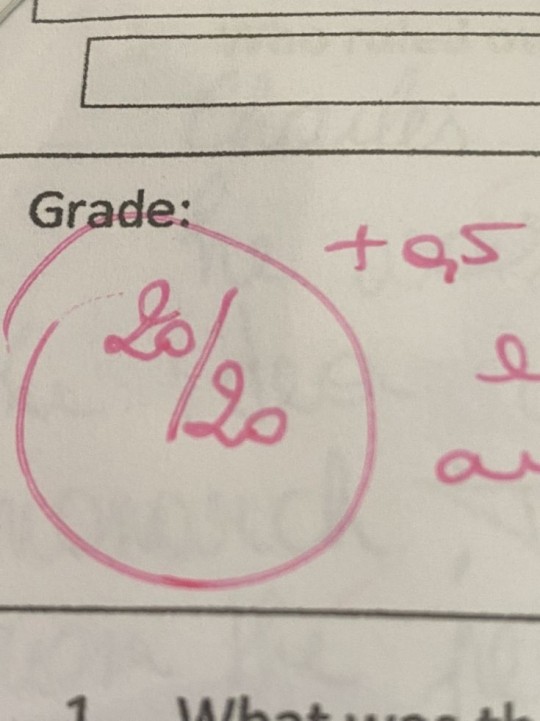
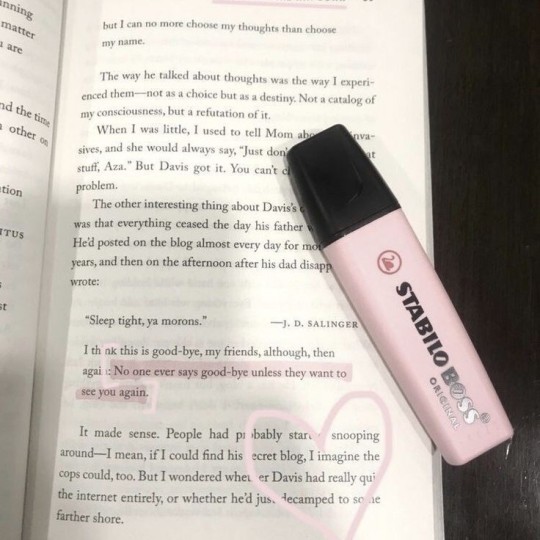
Language Resources 🎀
*that I currently use for studying Spanish. When I pick up studying Japanese again, I will make a list for that as well <3 I currently use a handful of resources for learning Spanish, and they've all proven very useful so far!
🩷 My Current Resources for Spanish
Busuu - hands down my favorite language learning app. So much better than Duolingo, in my opinion (especially for languages with a different alphabet/writing system). I bought the premium for a year, which will expire in Septmeber, but I'm debating renewing again because I love it so much.
LingQ - I like using this for reading in Spanish. It gives me different types of things to read about, and while I don't have premium, I do put all the words I don't know into flashcards on AnkiApp on my laptop and translate anything I don't know using SpanishDict.
SpanishDict - favorite translation/dictionary app. I know it has lessons you can use, tho I haven't tried it yet, but I really do love this app. It's super helpful when I'm making flashcards or writing random vocabulary notes.
Goodnotes - This is a general note-taking app, but I love it because it allows you to import and write on PDFs, and that's just perfect for me! I've downloaded free PDF short stories/children's stories in Spanish and made notes of words I don't know, and taken notes in the app too. Definitely my favorite notes app, ever.
Italki - I know this is a website, too, but I use the app. It lets you work with professional teachers/community tutors in your target language. You can have structured lessons or just use it for conversation practice. I did a trial lesson not too long ago and have an upcoming lesson booked out in about 5 days. You pay per lesson, so there is no subscription, and there are so many languages and teachers/tutors to choose from. I did a lot of research before choosing a teacher, and I'm very happy with my decision so far. Definitely useful if there's not native speakers near you or you're like me and not confident talking to people you know in your target language/their native language.
Quizlet/AnkiApp - I use AnkiApp more then quizlet, and the Anki I'm referring to is NOT the same way everyone else uses, but it's the flashcard app of preference at the moment. I tried the AnkiDroid app and hated it. But yeah, AnkiApp is useful for flashcards and I really like it. I have it on my Chromebook and my Ipad.
Netflix - I love watching shows in Spanish on Netflix so much. I am currently watching La Reina del Sur on it (used to watch that sporadically in the past at a friend's house) and plan on watching some other shows, including Elite.
Spotify - I enjoy listening to Spanish music and podcasts right now. The music is more of an entertaining/enjoyable fork of audio input, and the podcasts help me get a feel for speaking and pronunciation and I choose podcasts that speak on topics of interest tk help with vocabulary in those areas I'd like to be able to speak about.
Textbooks - I have 2 PDF textbooks, Gramatica de Uso del Español: A1-B2 and Gramatica de Uso del Español: B1-B2. I've heard these are great for learning Spanish (and they're both only written in Spanish, like there's no English in them) and plan on using them once I figure out how to take good and useful textbook notes! I definitely need to improve on my grammar.
Those are all my current Spanish resources! I'd definitely say my current level is like a high A1 right now, nearing A2, but I have just a little bit of work to do before I get there. These resources are definitely gonna help, tho!
#studyblr#study motivation#it girl#langblr#spanish langblr#study tips#language goals#that girl#langblog#language resources#foreign languages#language learning#language#langblr community#learn spanish#language learning goals#language studyblr#college studyblr#study blog#studying#language study tips#college student#student life#university student#language student#spanish#language learning tips#spanish studyblr#spanish language#study community
260 notes
·
View notes
Text
been practicing italian like a madman lately and i feel like i’m starting to understand the words a little better. just wanted to share my technique that i am currently using. mainly so that i wont forget it when i wake up tomorrow haha.
i pick an italian video, i personally like easy italian (because their videos are fun and have subtitles) and then i write down everything they say in a document on the computer. using my script i then play the video a couple times and read along.
at this point i’m pretty familiar with the words, but i look up the “new” or interesting words that i am either curious about or just find useful. i write the words or phrases down in my notebook and practice them. afterwards i reread the script along with the video again.
#language learning#study techniques#language learning technique#studyblr#langblr#foreign languages#learning italian#language learning tip#langblr tips#study tips#study time#study technique#language stuff
28 notes
·
View notes
Text
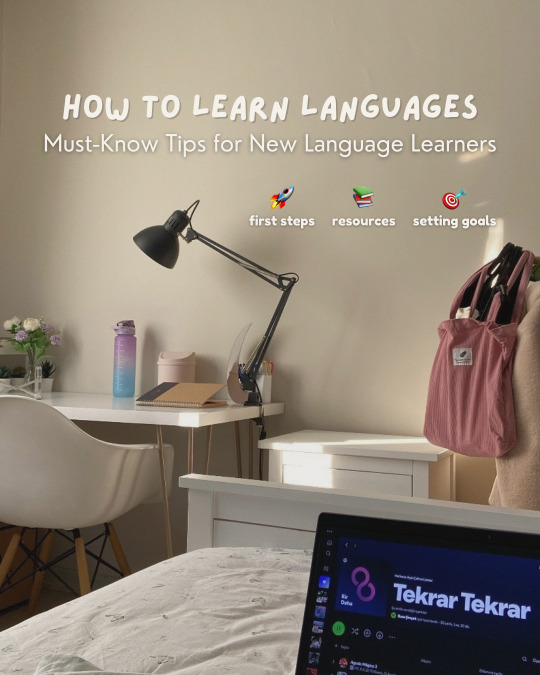
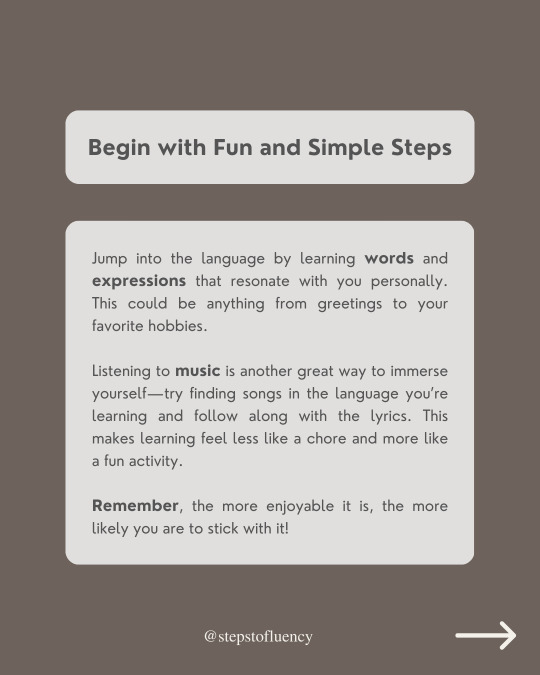

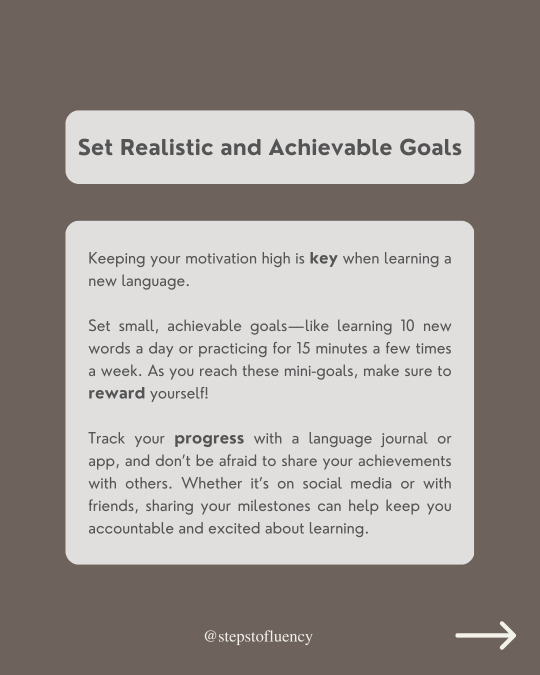

new tips from your bestie 💌
follow my studygram for more: @stepstofluency
#studyblr#langblr#buse#language learning#studygram#learning languages#study#languages#study inspo#study space#i love languages#language tips#foreign languages#study tips
124 notes
·
View notes
Text
Spanish Media/Input Recommendations?
Can you guys comment me some good media/input recommendations for someone learning Mexican/Spain Spanish? I' talking about any and all that you guys find interesting, whether you learned Spanish on your own or it's your native language!
Books
Podcasts
Tv Shows
Movies
Youtube channels
Songs/Musical Artists
Favorite Spanish teachers/tutors on Italki
Literally anything!
Thank you guys <3
#spanish studyblr#spanish langblr#spanish learning#spanish language#spanish#langblr#langblog#language tips#language learning#foreign languages#languages#language studyblr#language study#language goals#learn spanish#italki#spanish podcast#spanish books#university student#college student#español#mexican spanish#student life#student#college studyblr#college studyspo#language resources#language blog#languageblr#language learning tips
236 notes
·
View notes
Text
Keeping up your Languages when you’re Busy
Confession: I’ve been slacking on Japanese recently because my life has been so hectic recently. So here are some of the ways I’ve been trying to keep it in my brain when I can’t dedicate a lot of time to studying.
CHANGE YOUR PHONE LANGUAGE
This applies to computers as well! This is the easiest way to ensure you see at least some of your target language every day. It’s good for any level, even beginners.
If you haven’t already done this, do it now. I understand that some things are important and you need to be sure you understand them — in that case, you can always change individual apps to have different languages, just look up the app name in settings.
Podcasts/Music
Find some podcasts in your target language and listen to them before bed, during your commute, whatever. There are lots of podcasts made specifically for learners, or you can look up topics in your target language to find a podcast you might enjoy.
Music is also an amazing way to hear your target language being used. If you find an artist you like, that’s another good way to study your TL! Follow them on socials, look up interviews with them, etc.
Talk to Yourself
Any spare minute you have, talk to yourself in your target language. It doesn’t need to be out loud. You can have a conversation with yourself, try to express how you’re feeling, make up stories, or just describe the things around you in your target language. This is also a good way to see what kind of vocabulary you’re missing.
Apps
Duolingo has fired a ton of translators and started using crappy AI translations — so they’re probably not the best choice.
I’d recommend dictionary app that has some sort of flash card feature is also good, or an anki deck. Drops is good, and has a lot of languages, but keep in mind you’ll need audio. Anything that’s easy to get out and do for even just a few minutes is perfect.
Apps won’t teach you a language on their own, but doing a little every day helps remind me the language exists and keeps it in my mind.
Texting/Writing/Posting
Whether your friends know your TL or not, force them to experience it by randomly messaging in Japanese! Or, if you feel fancy, download an app like “HelloTalk”, “Tandem”, “Speaky”, “Tabee”…there are a lot.
If you keep a digital journal (like I do…inconsistently), try to write some entries in your TL.
If you have a blog, which I assume you do, post in your TL. Even if you’re a beginner, you can make a sideblog dedicated to saying stuff like “I’m hungry” and “Green is my favourite colour” in your target language.
Open your notes app and just write random words you can remember or sentences you can string together.
I know it’s really difficult, and don’t beat yourself up because you aren’t studying as hard. A language can be a lifelong companion — you’ll have phases of studying constantly, and sometimes it’ll take the back seat, but there’s no rush to learn it. Have a great day :)!
#language#language learning#langblr#languages#learning japanese#learning Spanish#learning French#Quinn posts#language learning apps#language learning resources#language learning advice#language tips#foreign languages#language resources#studyblr#100#my language tips
328 notes
·
View notes